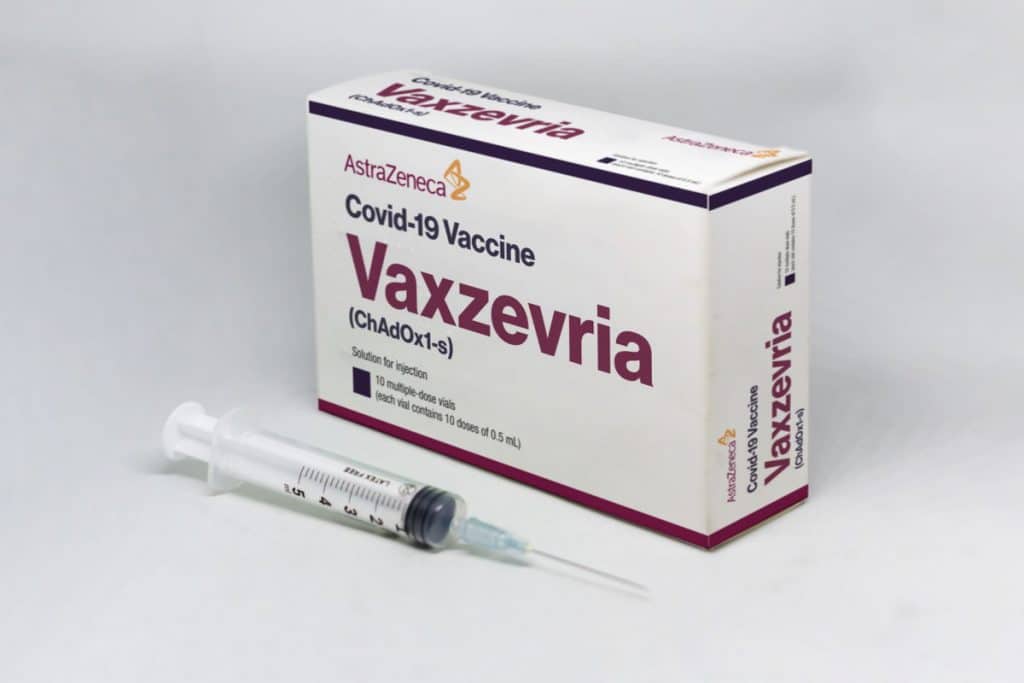
How much is the European Union's compensation claim against AstraZeneca?
For the delay in the delivery of doses of the Vaxzevria anti-Covid-19 vaccine, the EU has asked the Anglo-Swedish pharmaceutical company for huge compensation. Here is what could be dealt with, in euros, if the Brussels court were to accept the request of the community lawyers
Wired - May 27, 2021 - by Gianluca Dotti
 There vaccine rush has now turned into one battle in court. It happens at least in the case of the vaccine Vaxzevria, the formulation of Oxford-AstraZeneca which, as known, was at the center of not only one lawsuits (still not finished) speaking of rare side effects, but also of a number of alleged delays in deliveries, in violation of contractssigned with the European Union. This, at least, is the thesis supported by the team of lawyers led by Rafael Jeffareli and in charge of defending the interests of the EU Commission and of all 27 EU countries in the legal confrontation started yesterday at the Brussels court.
There vaccine rush has now turned into one battle in court. It happens at least in the case of the vaccine Vaxzevria, the formulation of Oxford-AstraZeneca which, as known, was at the center of not only one lawsuits (still not finished) speaking of rare side effects, but also of a number of alleged delays in deliveries, in violation of contractssigned with the European Union. This, at least, is the thesis supported by the team of lawyers led by Rafael Jeffareli and in charge of defending the interests of the EU Commission and of all 27 EU countries in the legal confrontation started yesterday at the Brussels court.
As communicated by the agency Reuters and taken up by newspapers from all over the world, the specific request made against the Anglo-Swedish pharmaceutical company is to fine the company for 10 euros for each day late for each dose of vaccine not delivered on time, to which to add a lump sum of 10 million euros of penalties (according to some journalistic sources, also per day) for each violation which will be identified with respect to what is reported in the text of the signed contract. For biased lawyers it is a “manifest violation” of the contract, aggravated by the fact that 50 million doses produced on European soil in the Dutch Halix plant in Leiden were destined outside the EU, United Kingdom included.
The defensive line of the company, at least according to what was disclosed by the defense lawyer Hakim Boularbah, would instead appear to be based on the thesis that what is written in the contract did not oblige AstraZeneca to allocate all its production sites to the Vaxzevria vaccine, and therefore that the effort put into production would be compatible with that "best effort" promised by the company and put in black and white on the contract. In practice, therefore, the supported idea is that the delay with respect to the agreed times would not be a violation of the contract, since it can only be attributed to the impossibility of performing better than what was done.
Let's do some calculations, doses in hand
Regardless of who will win in the end in court, in the complex legal battle that could end already during the month of June (at least in the first degree of Belgian justice), of which overall figures are we talking about the compensation requested? First, a couple of premises. The first is that the amount of the fine required is enormously higher than the price of each dose. As known, in fact, the cost of a Vaxzevria dose is close to 2 euros and, assuming a month's delay in the delivery of the dose, the lawyers' request is that the compensation be of 300 euros. Which becomes 1,800 euros if the delay is hypothetically 6 months. Of course, this high figure can be justified by the fact that the damage is not so much delivery skipped of a product that is worth 2 euros, but that the non-compliance with the timetable causes level damage public health, which then has repercussions on the economy, determining a ripple effect.
The second premise is that it would be a figure in continuous increase, meaning that the amount would continue to increase day by day as the doses have not yet been delivered and that the delay is continuing to accumulate. In short, they can be calculated today or based on short-term projections, while it is much more complex to go further in time.
 But let's get to the numbers. According to the contract signed last September, AstraZeneca was supposed to deliver to the European Union around 120 million doses of vaccine by first quarter 2021. And, it turns out, only a quarter of these doses would have actually been delivered by the end of March, for a total of about 30 million. It would seem not to be much better in the second quarter: from what has been declared, quarterly deliveries should reach 70 million by the end of June, against a pre-established total of 180.
But let's get to the numbers. According to the contract signed last September, AstraZeneca was supposed to deliver to the European Union around 120 million doses of vaccine by first quarter 2021. And, it turns out, only a quarter of these doses would have actually been delivered by the end of March, for a total of about 30 million. It would seem not to be much better in the second quarter: from what has been declared, quarterly deliveries should reach 70 million by the end of June, against a pre-established total of 180.
Basically, at the end of the first quarter the late doses were 90 million, at the end of the second they will be (as far as we can predict today) 200 million, i.e. we will arrive at 100 million delivered against the 300 expected. This means that only between 1 April and 30 June 2021 the fine would amount daily basis from an initial minimum of 900 million eurosto a final maximum of 2 billion. Assuming linear growth over the three months from April to June, that would mean a total of 130 billion euros for the second quarter, to which then add the portion corresponding to the first quarter (which with the same method we could estimate at another 40 billion euros) and all that will remain in the second half of the year. Faced with these figures, the 10 million euros (per day or less) for each contractual breach sound almost negligible.
Moreover, making a more detailed account, the figures would most likely be even higher. According to rebuilt from Health newspaper, for example, in early May the actual delay in deliveries amounted to roughly 150 million doses (50 delivered against 200 scheduled), while with the linear growth hypothesis of the estimation model shown above, the delay would have been 127 million doses. In short, the exact bill with the entire delivery calendar in hand could become close to 150 billion euros for the second quarter only.
The scenarios
Difficult to make predictions on the outcome of the judicial proceeding, as much will depend on theinterpretation which will be given the exact contractual wording. More than a discussion on deliveries, which are obviously something objective, the fulcrum of the contention concerns the concrete meaning of the undersigned statements. However, it is probable that if it is a question of compensation, the figures will come deflated compared to the requests made by the European Union. And it is still not clear about what time frame sanctions could be assessed, if on the first two quarters of 2021, if only on the first or on something else.
The overall figure, moreover, would put the economic stability of AstraZeneca itself in serious difficulty, whose global turnover in 2020 was of $26.6 billion (about 22 billion euros), and about 24 billion dollars in 2019. The overall capitalization of the company is just over 100 billion. In short, the figures we are talking about are of the order of total turnover of the company. We'll see.





